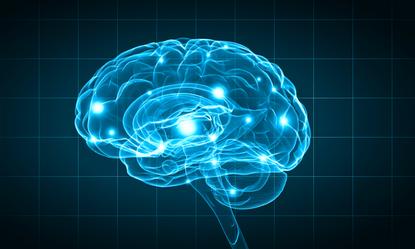Wearable brain devices sold with questionable claims
- 24 May, 2019 14:42

Wearable ‘neurotechnology’ devices have in recent years hit the mainstream market; pitched to consumers as a way to improve memory and attention, boost brain fitness and control games and objects with the power of the mind.
The US$249 Muse headband brainwave reader, for example, features EEG sensors to measure the activity of a user’s brain and an app to help them “find calm and stay focused” with help from “the guiding sounds of the weather”.
Australia-founded firm Emotiv Insight’s ‘brainwear’ device is fitted with similar sensors and comes with an app that will “improve your mental performance and well-being” the company’s marketing materials claim. “A new drug-free, easy-to-use, and perfectly safe solution to stress,” claims MyBrain Technologies of its MeloMind device.
An analysis of commercially available wearable ‘neurodevices’ published this week in journal Neuron has cast doubt on whether their makers can back up such claims.
A team of researchers at University of British Columbia in Vancouver identified 41 devices for sale, of which 22 were recording devices and 19 stimulating devices.
The researchers saw that four categories of claims emerged; ‘wellness’ with benefits like stress reduction, improved sleep, and weight loss; ‘enhancement’ covering improved cognition and productivity and greater physical performance; practical applications like research and enhanced worker safety; and health, promising improvement of conditions affecting behaviour and attention and certain neurodegenerative diseases.
“Despite wide-ranging claims, there have been few studies evaluating the scientific validity of any of them,” the researchers said.
For 33 of the 41 devices the makers linked to research or resources that further explained the claim, but for only eight devices was this relevant peer-reviewed research. The remainder typical linked to a paper covering the scientific concepts behind EEG devices in general, rather than the one being sold.
Other links were made to user testimonials, the company’s own research, or “peer reviewed literature that was irrelevant to the device or claim at hand”.
The researchers noted that only one device – sold as an aide for depression, anxiety and insomnia – had US Food and Drug Administration (FDA) approval, although nine claimed medical benefits.
“It is unclear then how eight devices that claim medical benefit appear to have escaped the requirement to provide FDA confirmation of the safety and efficacy of their stated function,” the researchers said.
The University of British Columbia team suggested some device makers were avoiding regulatory scrutiny by making claims about “wellness and enhancement rather than health”. Some listed diseases on their websites but did not specifically “articulate that the device can ameliorate that condition”.
The researchers compared the brain technology market to other direct-to-consumer medical products that sidestep regulation like “herbs and supplements, home genetic testing kits, so-called wellness CT scans, and keepsake 3D ultrasounds offered to pregnant women”.
"We have concerns, however, that people could turn to these devices rather than seeking medical help when they might actually need it," said paper co-author Judy Illes, professor of neurology at the university.
"They may also choose these devices over conventional medical treatments that they have been offered. There are a lot of potential effects that we don't know much about."
The researchers were also concerned about the lack of warning labels advising consumers about risks associated with the devices.
Symptoms and side effects from using the products can include redness or other irritation where the devices contact the skin, headaches, pain, tingling, and nausea. Some company’s mention the possibility of side effects in their packaging, but there haven't been any studies looking at how common or serious these side effects may be.
"I would consider this an important, responsible message to consumers, but as far as I know, few of these products have it," Illes said.
Illes and her team also expressed fears about the use of data from devices able to read brain activity.
"How are these data used, and who has access to them? These are things we don't know. We should be asking these questions," she said.
